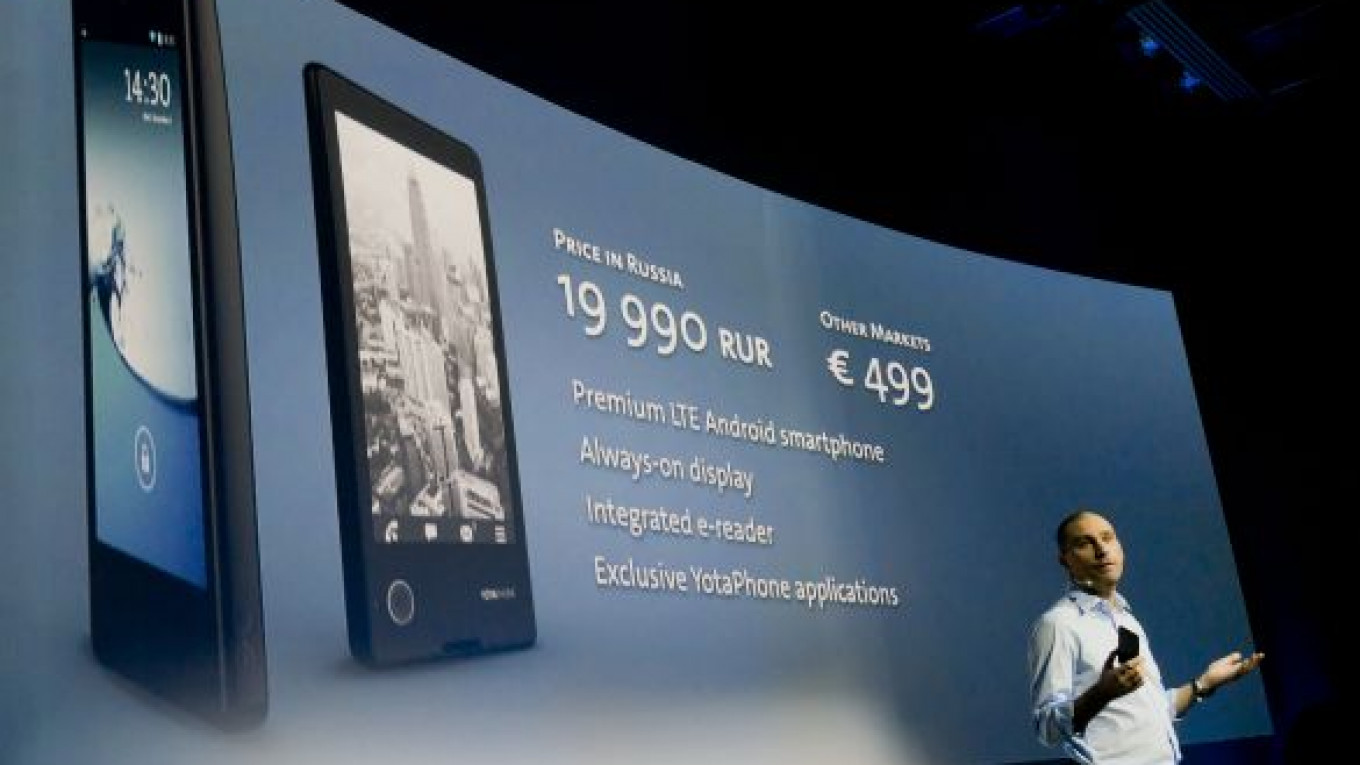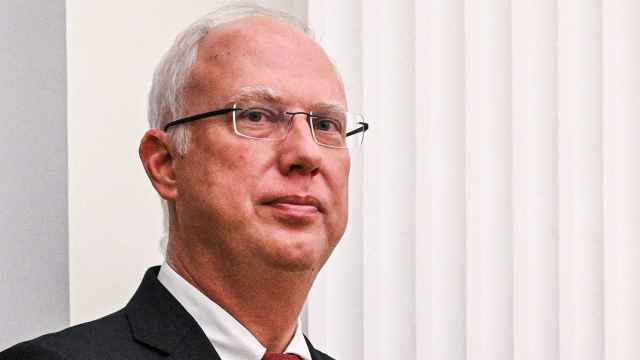Russian technology firm Yota Devices launched the world's first dual-screen mobile phone on Wednesday, breathing fresh air into the fast-growing and competitive smartphone market.
The YotaPhone has two screens — a 4.3-inch touch screen with a familiar Android interface on the front and a curved Kindle-like electronic paper display on the reverse side. Both screens are protected by the state-of-the-art scratchproof Gorilla Glass.
The back screen is designed to display e-books, alerts and text messages. As it only uses power to generate new images, the phone battery lasts up to 85 hours in e-book reading mode.
Even when the phone is switched off, the image on the back screen does not disappear — a convenient feature for displaying a boarding-pass barcode, a map or just a wallpaper.
The device is not just another smartphone, Yota Device's chief executive Vladislav Martynov said at the launch. It is "a new user experience" that will change the way people use their phone.
Founded in 2011 to produce mobile connectivity devices for Yota, a private wireless internet provider, the base of Yota Devices' business is LTE modems and routers, where the company has a worldwide market share of 6 percent.
The YotaPhone goes on sale this month. It will be available in Russia for 19,990 rubles ($600), and in Austria, France, Germany and Spain for 499 euros ($680). Next year sales will begin in the Middle East at a similar price. Currently, there are no plans to try the U.S. market.
"If we really hit the mark then in two to three years everyone will be copying us, and we will be happy" Martynov said.
Artyom Lutfullin, editor of mobile-review.com, however, poured cold water on that notion, pointing out that products with similar functionality already exist, such as mobile phone cases with inbuilt electronic paper displays on the back. Yota's originality was to put the feature in the phone itself.
Bayram Annakov, from Moscow-based mobile application developer Empatika, said that while the idea of the always-on electronic paper display sounds interesting, it has yet to be seen if the market will adopt it.
"Most likely, the device is not intended to become a smartphone as such, but as a platform upon which to sell applications and services suitable for the back screen," Annakov said.
Yota Devices have succeeded in their goal to create a phone unlike any other on the market, said Lutfullin. The YotaPhone cannot and will not compete against the market leaders, he said — it has created a market segment of its own.
The market is growing fast enough that Yota may have a good chance of carving out its own niche — smartphone sales grew 44.5 percent year-on-year in the first half of 2013 to reach 77.5 billion rubles, according to data from telecoms giant MTS.
Contact the author at [email protected]
A Message from The Moscow Times:
Dear readers,
We are facing unprecedented challenges. Russia's Prosecutor General's Office has designated The Moscow Times as an "undesirable" organization, criminalizing our work and putting our staff at risk of prosecution. This follows our earlier unjust labeling as a "foreign agent."
These actions are direct attempts to silence independent journalism in Russia. The authorities claim our work "discredits the decisions of the Russian leadership." We see things differently: we strive to provide accurate, unbiased reporting on Russia.
We, the journalists of The Moscow Times, refuse to be silenced. But to continue our work, we need your help.
Your support, no matter how small, makes a world of difference. If you can, please support us monthly starting from just $2. It's quick to set up, and every contribution makes a significant impact.
By supporting The Moscow Times, you're defending open, independent journalism in the face of repression. Thank you for standing with us.
Remind me later.






